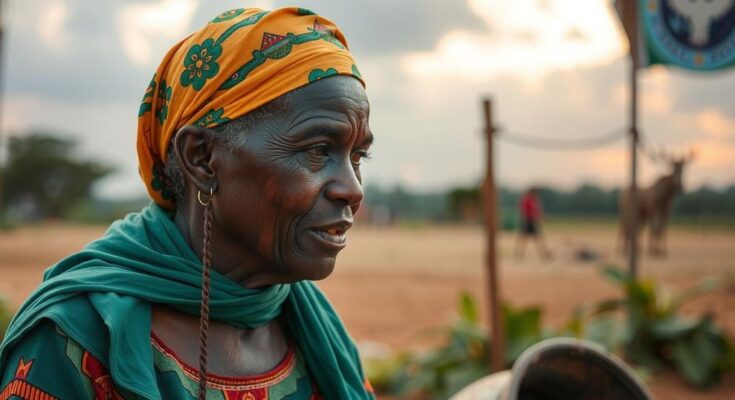The African Commission on Human and Peoples’ Rights held a panel in Banjul, The Gambia, on October 17, 2024, introducing a new tracker to monitor the protection of human rights defenders across Africa. This tool assesses countries based on their adherence to international standards and regulations surrounding freedoms of association and assembly, raising significant discussions among attendees regarding compliance mechanisms and the current human rights climate on the continent.
In Banjul, The Gambia, on October 17, 2024, the African Commission on Human and Peoples’ Rights convened a significant panel addressing the situation of human rights defenders across the continent. Guided by Commissioner Rémy Ngoy Lumbu, the panel included insights from prominent speakers representing the International Center for Not-for-profit Law (ICNL) and the Network of African National Human Rights Institutions (NANHRI). The atmosphere brimmed with anticipation as the panel introduced an innovative tracker designed to assess legislative conditions protecting human rights defenders by country, highlighting development, execution, and adherence to applicable standards. This new tracking tool serves as a beacon of hope, scrutinizing pivotal legislation and court decisions related to freedom of association and assembly. Countries are classified as “compliant,” “partially compliant,” or “non-compliant,” based on their alignment with international and regional benchmarks. This classification ignites a fire of discussion, bringing to light the intricacies of evaluating human rights practices and encouraging accountability across African nations. Deepening the discourse, NANHRI underscored the vital importance of this tracker for national human rights institutions, emphasizing how it can serve as a guide for improving adherence to human rights norms. Delegates, like those from Algeria, eagerly sought clarity on the criteria and processes determining a country’s compliance status. These queries unfold a world of complexity behind the labels assigned to nations, reflecting the weight of human rights responsibilities. Amidst the discussions, Commissioner Sow articulated concerns regarding the state of human rights defenders in Africa. He noted a troubling trend against the principle that freedom to protest should be the norm, asserting, “the freedom to protest should be the rule and its prohibition the exception, but the trend is toward the opposite.” This sentiment resonated through the room, echoed in the concluding remarks by Chairperson Ngoy Lumbu, reinforcing the urgency of safeguarding freedoms.
The panel at the African Commission’s 81st Ordinary Session highlighted the pressing issue of human rights defenders in Africa. The introduction of a monitoring tool signifies a proactive approach to ensuring compliance with human rights standards across diverse nations. It aims to illuminate the legislative landscape governing the rights of these defenders, ultimately pushing for enhanced advocacy and protection.
The introduction of a monitoring tracker represents a crucial step toward bolstering the protection of human rights defenders in Africa. By classifying countries based on their legislative compliance, it seeks to shine a light on the existing human rights challenges and foster accountability. The discussions underscore a collective commitment to enhance freedoms, particularly the right to protest, amid growing restrictions.
Original Source: ishr.ch



